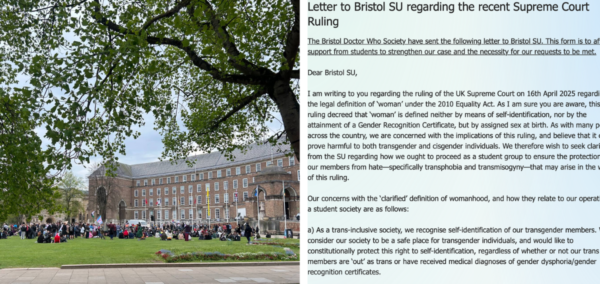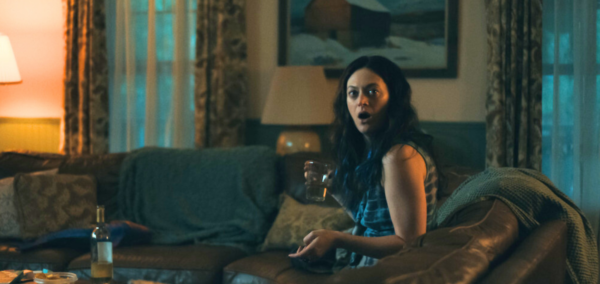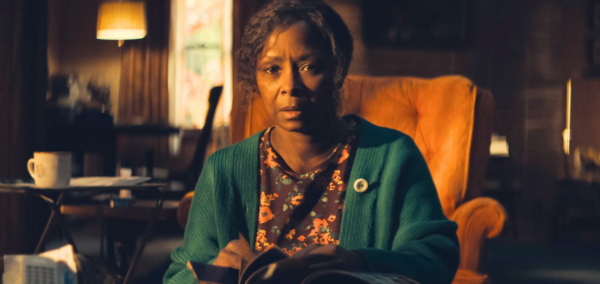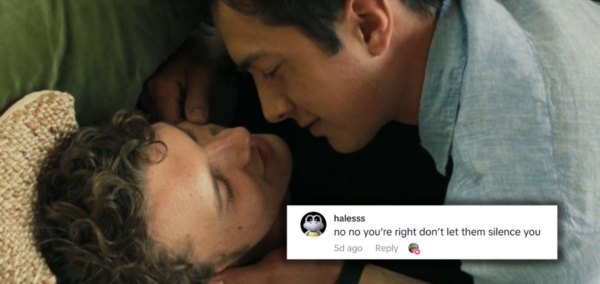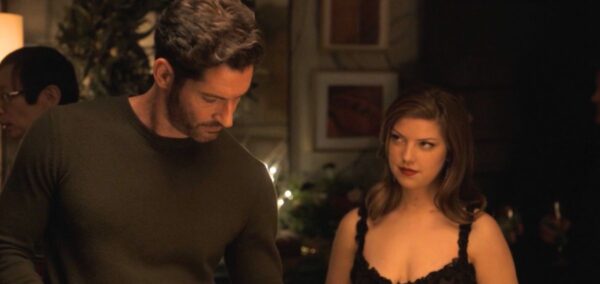
Caravans on the Downs: Why tensions between van dwellers and Bristol locals are rising
Everything you need to know about the current Downs debate
For those who visit the Downs, undoubtedly you will have noticed the caravans that line the edges. The debate surrounding the caravans has grown in post-pandemic years alongside the cost of leaving, as the number of vans parked on the green has surged.
In March, a public meeting organised by Sneyd Park Residents Association was held at St Alban’s Church in Redland to discuss the issue. More than 450 local residents gathered to address concerns about the growing number of van dwellers. Councillor Barry Parsons (Green chair of the City Council’s homes and housing delivery committee) and Councillor Richard Eddy (Conservative deputy) outlined their ideas for dealing with the van dwellers, although they admitted there are no short-term solutions to such a long-term process.
The BBC recently released a video of a heated exchange between locals and van-dwellers on the Downs. Danny, a 55-year-old man living in a converted horsebox, marches across the grassy expanse in Clifton, Bristol, to confront a group of residents gathered near their homes, by a row of caravans.
This interaction is a small but telling snapshot of the growing tensions in the city’s leafy suburb. Over 100 caravans have popped up near the historic Downs, one of Bristol’s most cherished green spaces. These mobile homes show no signs of leaving anytime soon, and the influx has sparked a growing divide between those living in the caravans and local residents.
A growing divide
Most Read
For many of Clifton’s residents, the issue is growing. Complaints have mounted about rubbish, human waste, antisocial behaviour, and streets and views being blocked. With van dwellers taking up parking spaces traditionally limited to five hours, it’s no surprise that frustration is growing. Many of the residents feel their lives are being disrupted and want action. On the other side, the van dwellers are calling for understanding and empathy.
Bristol’s soaring house prices and rising rents have made it one of the most expensive cities in the UK, contributing to a housing crisis that leaves many feeling excluded. This economic strain is only exacerbating the tension playing out in the streets and parks of our city.
"What's it got to do with you"
There's anger and arguments in Bristol where more than 100 caravans have appeared on the edge of the green space with residents have complained about rubbish, human waste and anti-social behaviourhttps://t.co/LC68AYKkLG pic.twitter.com/euE7WcSfOx
— BBC Breakfast (@BBCBreakfast) May 3, 2025
Two sides, one city
Danny points to a local Facebook group called “Protect the Downs” as evidence of a growing hostility towards his community. The group’s calls to remove the vans have only fuelled Danny’s anger, accusing locals of being like a “lynch mob.”
Tony Nelson, a former RAF serviceman and a key figure behind the Facebook group, disputes these claims: “The few responsible van dwellers are fine: They’ve never been a problem,” he says. However, Tony is quick to point out the troubling incidents that have taken place, such as a caravan being destroyed in a suspected arson attack. Locals have also reported instances of drug use, human trafficking, and public health concerns, including the illegal disposal of waste.
Tony’s main concern isn’t about vilifying all van dwellers, but about addressing the needs of those truly vulnerable: “We’re trying to find the people who are truly vulnerable so we can get them the help they need,” he explains. His sentiment is clear: The Downs, once a treasured place, has now become a “sink.”
For some residents, the situation has escalated to the point where they no longer feel safe. Anne Bragg, who moved into a home overlooking the Downs six years ago, says she and her fellow retirees are now afraid to leave their flats at night.
“I have a great deal of sympathy for people who are homeless,
“But there are a lot of people up here who are not, they’re just living here because they can. I have to pay for the privilege,” referring to the lack of council tax paid by many van dwellers.
No easy solution

Bristol has made efforts to address the issue, proposing dedicated sites for van dwellers and “service sites” for waste disposal and water. However, such plans remain underfunded and far from becoming a reality. For now, temporary sites and outreach services struggle to keep up with demand.
Ian Bowen, who leads Bristol’s Gypsy, Roma, and Traveller Service, acknowledges the city’s “crisis of accommodation.” He emphasises that more needs to be done to provide housing for those locked out of the market due to poverty, addiction, or mental health issues. Solutions come at a cost, one that a public service can’t always afford.
Not all van dwellers are resistant to change. Ash Waker, a 30-year-old chef living in a van near Bristol’s Ikea, says he would “happily” move onto a permanent site if it meant peace for himself and his fellow van dwellers. “If it keeps the peace and we can live how we want to live, then I’ll happily pay for it,” he says.
But others, like Danny, remain resolute in their decision to stay put, saying: “They will never get rid of us. People have lived on that road for years, 30 or 40 years.”
He also believes that some of the local residents’ complaints stem from narrow mindedness: “They’re bigoted,” and “small-minded.”
At the heart of this ongoing conflict lies a question of rights: Whose rights should take precedence in shared spaces? Many van dwellers are not there by choice but due to a lack of affordable housing, while others embrace the lifestyle for the freedom it offers. In the fiery confrontation witnessed on the Downs, the two sides were unable to see eye-to-eye. Yet, as tempers cooled, there was a surprising moment of agreement. Tony and Danny shook hands.
“We all agree it’s the council’s inaction that is letting everybody down,” Tony acknowledges, a sentiment that resonates with both sides.
Featured image via Google Maps.








